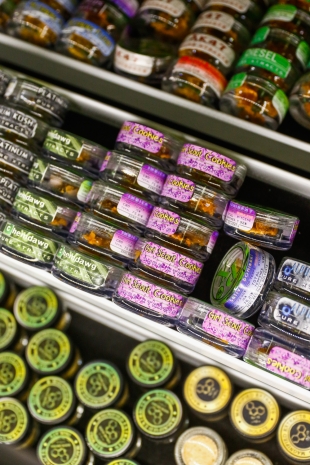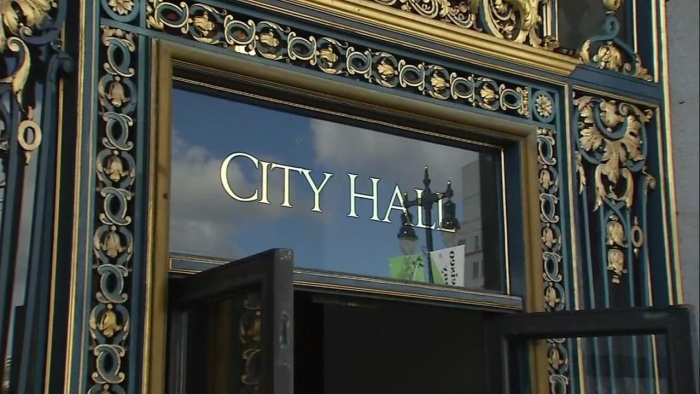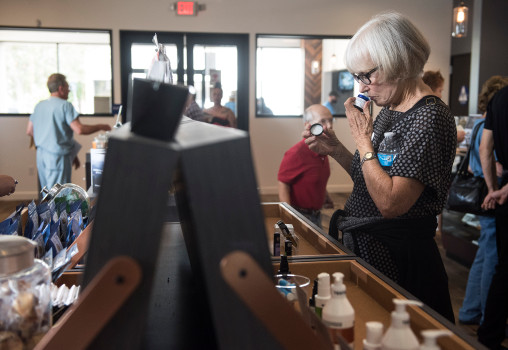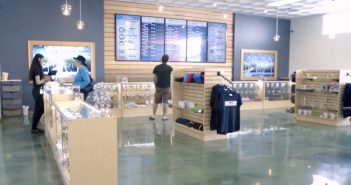Legalized marijuana may be a popular proposition among Palo Alto voters, but the City Council indicated on Monday night that when it comes to pot, it feels far more comfortable passing a ban than a blunt.
By a unanimous vote, the council agreed to continue Palo Alto’s prohibition on marijuana dispensaries, as well as all commercial activities involving marijuana except deliveries. In doing so, council members effectively extended a ban that they passed a year ago and that was set to expire this month.
The most significant difference between last year’s ban and the one that the council approved Monday revolves around outdoor cultivation of marijuana. The prior ordinancebanned the practice. The new one removes this ban and defaults to state regulations, which already mandate the outdoor plants be locked, out of view and inaccessible to the public.
Also, unlike the prior ban, the new one doesn’t have a sunset clause.
Councilman Adrian Fine urged his colleagues to reconsider their opposition to pot shops, noting that two-thirds of the city’s voters supported Proposition 64 last November. The measure legalized recreational marijuana and empowered the state to create a regulatory framework for commercial operations. The state Bureau of Cannabis Control, which is now finalizing its regulations for marijuana dispensaries, is scheduled to start issuing licenses in January.
Much like they had in prior discussions, council members agreed Monday that banning local marijuana dispensaries is a way to maintain local control. Members argued that the time isn’t right to allow dispensaries.
The only council members who supported a more lenient approach were Fine and Councilman Cory Wolbach. Fine said the city is turning its back on commercial opportunities that other cities will seize.
“Our city is being too tepid and overly conservative on this,” Fine said.
He acknowledged that many people don’t want to see pot shops in their neighborhoods, but called it an “eminently solvable problem” that can be addressed with zoning restrictions and other rules.
Fine wasn’t alone in taking this position. Local resident Robert Smith told the council that he was shocked that the council is expressing “consternation, denial and trepidation” about doing something that he said follows through on the will of the city’s voters.
“I don’t think it was a philosophical vote,” Smith said. “It was an actionable thing, and you need to take a more serious and proactive approach.”
But Mayor Greg Scharff, a leading opponent of local dispensaries, pointed to a different vote to support his position: a 2012 measure in which Palo Alto rejected a citizen petition to legalize up to three medical marijuana dispensaries.
Known as Measure C, that proposal was spearheaded by former Ronald Reagan adviser Thomas Gale Moore and Cassandra Chrones Moore. The measure ultimately fizzled, with virtually no organized campaign from proponents and unanimous opposition from the City Council.
Prior to the 2012 election, Scharff wrote the opposing argument in which he called medical marijuana dispensaries “hotspots for crime” and argued that allowing these facilities will “increase marijuana use by our kids and it will hurt them physically and academically.” On Monday, he suggested that the Measure C vote (in which 63 percent of the voters opposed the Moore initiative) indicated that most people oppose having local marijuana dispensaries.
He also argued that there’s nothing inconsistent about voting to support Prop. 64 and then opposing having marijuana legally bought and sold in the city.
“I think it should be legal in California, but I don’t want to see it in Palo Alto,” Scharff said.
Both Scharff and Vice Mayor Liz Kniss pointed to Mountain View, which has taken a far more liberal approach on dispensaries (the council there directed staff earlier this year to develop local regulations for marijuana dispensaries in commercial areas).
“If Mountain View wants to go ahead with this, let’s see what it looks like in Mountain View,” Scharff said.
Kniss, who co-signed the opposition argument in 2012, suggested that the city wait until the community expresses more clearly its desire to see dispensaries. Only three people addressed the council on the topic Monday, with two supporting local dispensaries and one opposing them.
“I don’t think the timing is right,” Kniss said. “We have a great opportunity to watch the city next door and see what happens with them.”
credit:paloaltoonline.com













